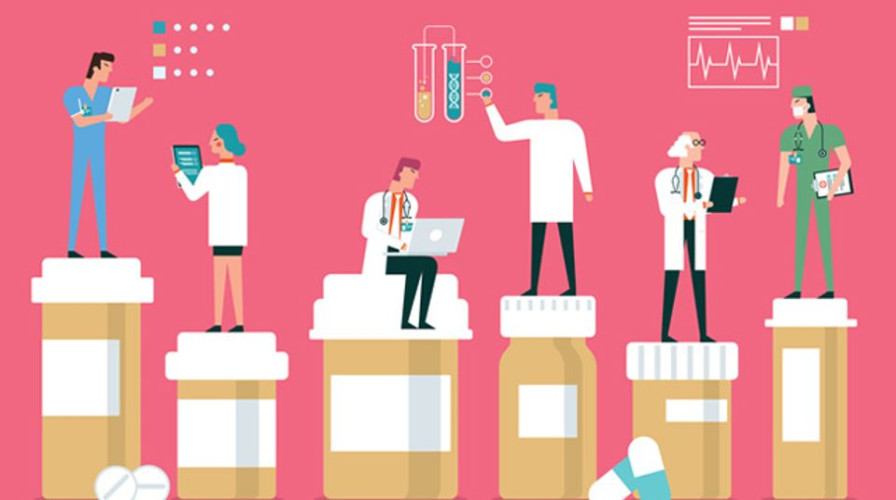Advances in Personalized Medicine: Transforming Healthcare for the Future

Personalized medicine, a revolutionary approach in healthcare, tailors medical treatment to the individual characteristics of each patient. By leveraging advancements in genomics, biotechnology, and data science, personalized medicine promises to enhance treatment efficacy, minimize side effects, and improve overall patient outcomes. This article explores the latest advancements in personalized medicine and their implications for the future of healthcare.
1. Genomics and Genetic Sequencing
a. Whole Genome Sequencing (WGS): Whole genome sequencing involves analyzing an individual’s entire genome, providing a comprehensive overview of their genetic makeup. Recent advances in sequencing technology have dramatically reduced costs and increased the speed of genetic analysis. This allows for more widespread use of WGS in clinical settings, enabling precise identification of genetic mutations linked to various diseases.
b. Targeted Genomic Testing: Beyond WGS, targeted genomic testing focuses on specific genes known to be associated with particular conditions. This approach is often used for diagnosing genetic disorders, guiding cancer treatment, and assessing risk factors for diseases such as cardiovascular conditions.
c. Epigenetics: Epigenetics studies how environmental factors and lifestyle choices can influence gene expression without altering the underlying DNA sequence. Advances in epigenetic research are helping to understand complex diseases and develop personalized interventions based on an individual’s epigenetic profile.
2. Pharmacogenomics
a. Personalized Drug Therapy: Pharmacogenomics examines how an individual's genetic makeup affects their response to medications. By identifying genetic variations that influence drug metabolism and efficacy, healthcare providers can tailor drug prescriptions to minimize adverse effects and optimize therapeutic outcomes.
b. Examples and Applications: For example, genetic tests can determine how a patient metabolizes drugs like warfarin (an anticoagulant) or clopidogrel (a blood thinner), allowing doctors to adjust dosages accordingly. Similarly, genetic markers can predict responses to cancer therapies, such as HER2-positive breast cancer treatments.
3. Biomarkers and Diagnostic Tools
a. Molecular Biomarkers: Advances in biomarker discovery are enhancing the ability to diagnose diseases early and monitor treatment responses. Molecular biomarkers, such as circulating tumor DNA (ctDNA) and liquid biopsies, enable non-invasive detection of cancer and other conditions, facilitating earlier intervention.
b. Companion Diagnostics: These are tests developed alongside specific drugs to determine if a patient is likely to benefit from the treatment. For example, tests that identify the presence of specific genetic mutations can guide the use of targeted therapies in cancer treatment.
4. Artificial Intelligence and Data Integration
a. AI in Drug Discovery: Artificial intelligence is revolutionizing drug discovery by analyzing vast datasets to identify potential drug candidates and predict their efficacy. Machine learning algorithms can sift through complex biological data, accelerating the development of personalized therapies.
b. Integrating Health Data: AI also aids in integrating and analyzing diverse health data, including electronic health records (EHRs), genetic information, and lifestyle factors. This comprehensive data analysis helps in developing personalized treatment plans and predicting patient outcomes.
5. Personalized Cancer Therapy
a. Genomic Profiling of Tumors: Personalized cancer treatment involves analyzing the genetic profile of a patient’s tumor to identify specific mutations driving cancer growth. This information guides the selection of targeted therapies designed to attack cancer cells while sparing healthy tissues.
b. Immunotherapy: Advances in personalized immunotherapy, such as CAR-T cell therapy, involve engineering a patient’s own immune cells to recognize and destroy cancer cells. Personalized approaches are enhancing the effectiveness of these treatments and expanding their applicability to various types of cancer.
6. Challenges and Future Directions
a. Data Privacy and Security: With the rise of personalized medicine comes the need for robust data privacy and security measures. Ensuring that genetic and health information is protected from unauthorized access is crucial for maintaining patient trust.
b. Cost and Accessibility: While personalized medicine holds great promise, its implementation can be costly. Efforts are needed to make these advanced treatments more accessible and affordable to a broader population.
c. Ethical Considerations: Ethical issues related to genetic testing, data sharing, and potential discrimination must be addressed. Clear guidelines and policies are required to navigate these concerns and ensure equitable access to personalized medical care.
d. Integrating Advances into Clinical Practice: Bridging the gap between cutting-edge research and everyday clinical practice is essential. Continuous education for healthcare providers and the development of practical tools for integrating personalized medicine into routine care will be vital for its widespread adoption.
Advances in personalized medicine are reshaping the landscape of healthcare, offering the potential for more precise, effective, and individualized treatment options. From breakthroughs in genomics and pharmacogenomics to innovations in AI and cancer therapy, the field is rapidly evolving. As these advancements continue to develop, they hold the promise of improving patient outcomes and transforming the way we approach health and disease. However, addressing the associated challenges will be crucial in ensuring that the benefits of personalized medicine are realized equitably and ethically across diverse populations.










